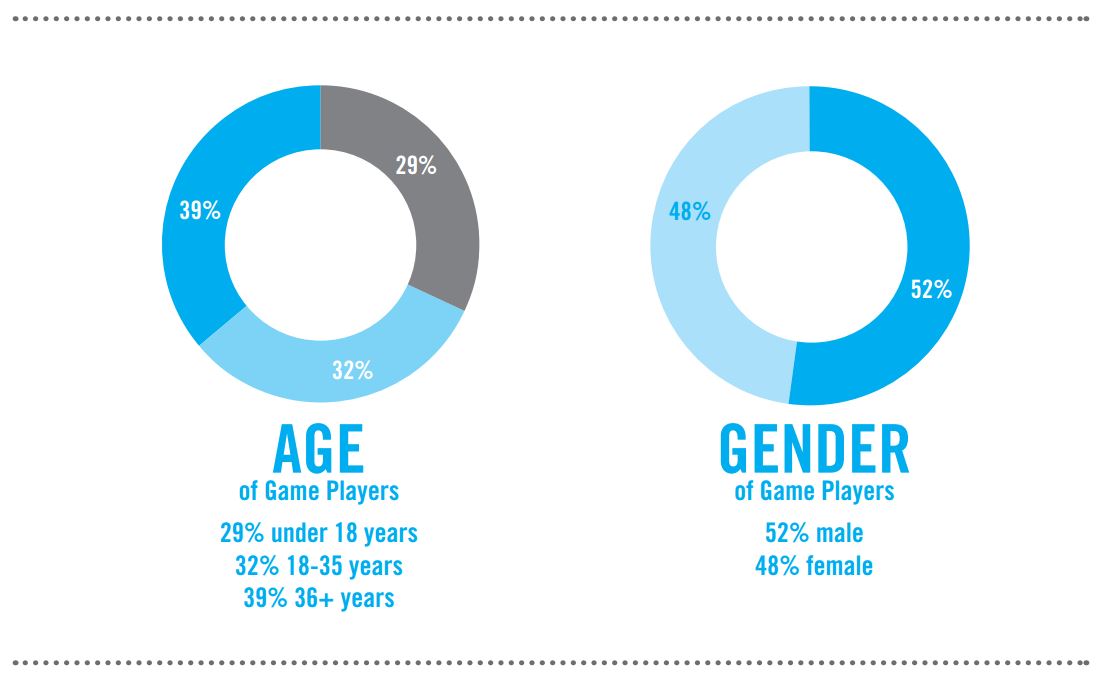Gamers are getting older, and more of them are women than ever before.
Industry advocacy group the Entertainment Software Association, which operates the Electronic Entertainment Expo tradeshow and lobbies on behalf of publishers and developers, revealed a number of facts and figures about the gaming industry today. The report finds that 59 percent of Americans play games and that the average household in the U.S. has at least two gamers.
“People of all ages play video games,” Gains Through Gaming Lab co-director Jason Allaire said in regard to the report. “There is no longer a ‘stereotypical game player,’ but instead a game player could be your grandparent, your boss, or even your professor.”
The ESA’s report reflects that sentiment throughout.
The average age of someone who plays games is 31 years old. In fact, more gamers are over the age of 36 than between the ages of 18 to 35 or under the age of 18. They are also mostly men, but by a slimming margin. Men make up 52 percent. From 2012 to 2013, the number of women gamers over the age of 50 grew by 32 percent.
When it comes to how they play, most are still using a console. The average U.S. home owns at least one dedicated console, PC, or smartphone, but 68 percent of those that do use the console for gaming. That’s compared to 53 percent for smartphones.
Despite that disparity, smartphone use is up 22 percent from 2012 to 2013
Gamers are still buying more action games and shooters than anything else. The ESA finds that action makes up 31.9 percent while the gun-heavy titles make up another 20 percent. The rest of the pie chart splits between sports, role-playing, and a variety of other genres.
Of course, those are for premium-priced games that are for sale online or through retail. In terms of online games that people are playing the most (defined as most time spent playing), casual and social games take the top spot at 30 percent. That genre, which specializes in free-to-play mobile games, is up 55 percent from 2012. Puzzle, trivia, and card games make up another 28 percent. Clumped together below that is action, sports, strategy, and role-playing at 24 percent.
The ESA also reports that the total spending on games in the U.S. was $21.53 billion. That includes software, hardware, and accessories.
Finally, for the first time ever, digital spending on gaming outpaced physical retails sales in 2013. Digital games, which includes full downloads as well subscriptions and microtransactions, made up 53 percent of software revenue.
The ESA has a ton more data in its full report, which is available on its website.
VentureBeat's mission is to be a digital town square for technical decision-makers to gain knowledge about transformative enterprise technology and transact. Learn More



